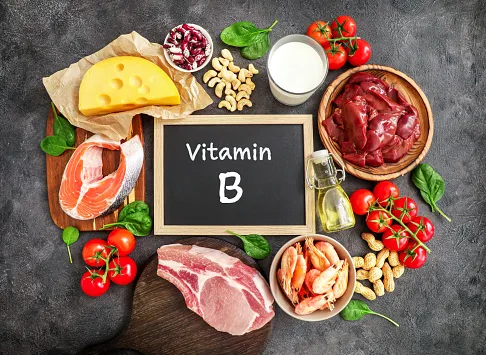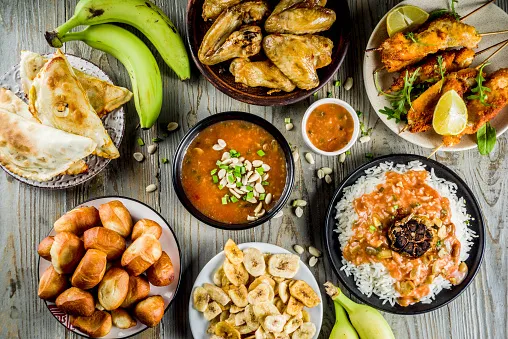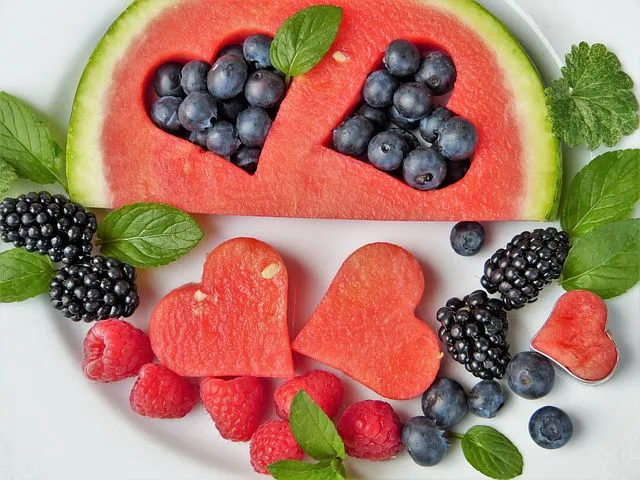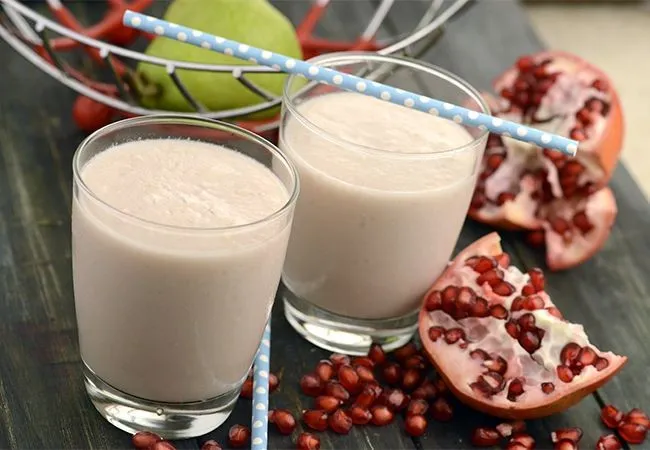10 Healthy High-Carb Foods In Nigeria
In this article, we will provide a detailed overview of ten healthy high-carb foods in Nigeria including their nutritional content and how they can be incorporated into the diet.
Carbohydrates are essential macronutrients that provide the body with energy and are an important source of fuel for the brain and muscles. While it is important to consume a balanced diet that includes a variety of different types of carbs, some people may choose to focus on consuming high-carb foods as part of their overall nutrition plan.
In Nigeria, there are several healthy high-carb foods that are commonly consumed as part of the local diet. These healthy high-carb foods in Nigeria can provide a range of nutrients, including complex carbs, fiber, and other essential Vitamins and minerals.
Some examples of healthy high-carb foods in Nigeria include plantains, yams, rice, breadfruit, beans, maize, cassava, sweet potatoes, oats, and quinoa.
10 Healthy High-Carb Foods In Nigeria
Here is a list of 10 Healthy High-Carb Foods In Nigeria:
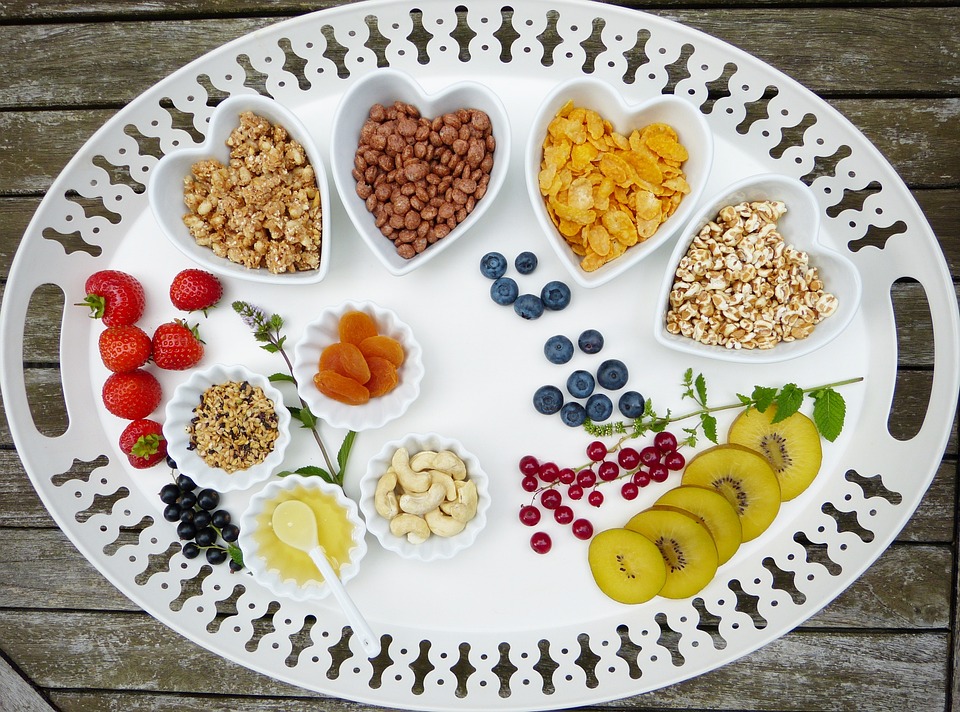
Plantains
Plantains are a type of starchy, banana-like fruit that is native to West Africa. They are a good source of complex carbohydrates and fiber, as well as other nutrients like vitamin C, potassium, and magnesium.
Plantains can be cooked in a variety of ways, including frying, boiling, or baking, and are often used in dishes like dodo (fried plantains) or Amala (a type of yam flour).
Yam
Yams are a staple food in Nigeria and are a good source of complex carbs, as well as other nutrients like potassium and vitamin C.
They can be boiled, roasted, or pounded into a dough-like consistency and used in dishes like Eba (a type of pounded yam) or fufu (a type of doughy ball made from cassava or yam flour).
Rice
Rice is a common staple food in Nigeria and is a good source of carbs. It can be cooked in a variety of ways, including steamed, boiled, or fried, and is often served with stews or sauces.
White rice, which is commonly consumed in Nigeria, is a refined grain that has been stripped of its bran and germ, which means it is lower in fiber and other nutrients compared to whole-grain rice. However, brown rice, which is a whole grain, is also available in Nigeria and is a healthier option as it is higher in fiber and other nutrients.
Breadfruit
Breadfruit is a round, starchy fruit that is native to the South Pacific but is also grown in Nigeria. It is a good source of carbs and can be cooked in a variety of ways, including roasted, boiled, or fried.
Breadfruit is often used in dishes like Kokoro (a type of roasted breadfruit) or Ekuru (a type of stew made with breadfruit and beans).
Beans
Beans, such as black-eyed peas and kidney beans, are a good source of carbs and protein and are a common component of many Nigerian dishes, including egusi (a type of melon seed soup) and Moin-Moin (a type of steamed bean pudding). Beans are also a good source of fiber and other nutrients like iron and zinc.
You should check out our previous post on the 10 Amazing Health Benefits of Beans and Plantain.
Maize
Maize, or corn, is a type of grain that is a good source of carbs and is often ground into flour and used in dishes like ogi (a type of cornmeal pudding) and Koko (a type of porridge made with cornmeal). Maize is also a good source of fiber and other nutrients like thiamin and niacin.
Cassava
Cassava is a starchy root vegetable that is native to South America but is also widely grown and consumed in Nigeria.
It is a good source of carbs and can be boiled, roasted, or pounded into a dough-like consistency and used in dishes like gari (a type of cassava flour) or Eba (a type of pounded cassava). Cassava is also a good source of fiber and other nutrients like vitamin C and potassium.
Sweet potatoes
Sweet potatoes are a good source of carbs and are a rich source of fiber and other nutrients like vitamin A, vitamin C, and potassium.
They can be baked, roasted, or mashed and are often used in dishes like jollof rice (a type of spicy rice dish) or as a side dish.
Oats
Oats are a type of whole grain that are a good source of carbs and are a rich source of fiber and other nutrients like manganese, selenium, and phosphorus.
They can be cooked as porridge or added to baked goods like bread and cookies. Oats are also a good source of antioxidants and have been shown to have a number of health benefits, including reducing cholesterol levels and improving blood sugar control.
Quinoa
Quinoa is a high-protein, high-carb grain that is native to South America but has become popular in Nigeria in recent years. It is a good source of carbs and is also a rich source of protein, fiber, and other nutrients like iron, magnesium, and zinc.
Quinoa can be cooked and used in a variety of dishes, including salads and grain bowls. It is also a good choice for people who follow a gluten-free diet as it is naturally gluten-free. Quinoa has a nutty flavor and a slightly crunchy texture and can be used as a substitute for rice or other grains in many dishes.
Read Also: 15 Healthy Nigerian Foods Rich in Magnesium
Conclusion
There are several healthy high-carb foods in Nigeria that can provide the body with essential energy and nutrients. These healthy high-carb foods in Nigeria, including plantains, yam, rice, breadfruit, beans, maize, cassava, sweet potatoes, oats, and quinoa, are rich in complex carbs and fiber and can also provide a range of other essential vitamins and minerals.
While it is important to consume a balanced diet that includes a variety of different types of carbs, these healthy high-carb foods in Nigeria can be a useful addition to the diet for people looking to increase their carb intake. By incorporating a variety of these foods into their diet, individuals can help to ensure that they are getting the nutrients they need to support their overall health and well-being.
Overall, these healthy high-carb foods in Nigeria can play an important role in maintaining a healthy, balanced diet in Nigeria.

